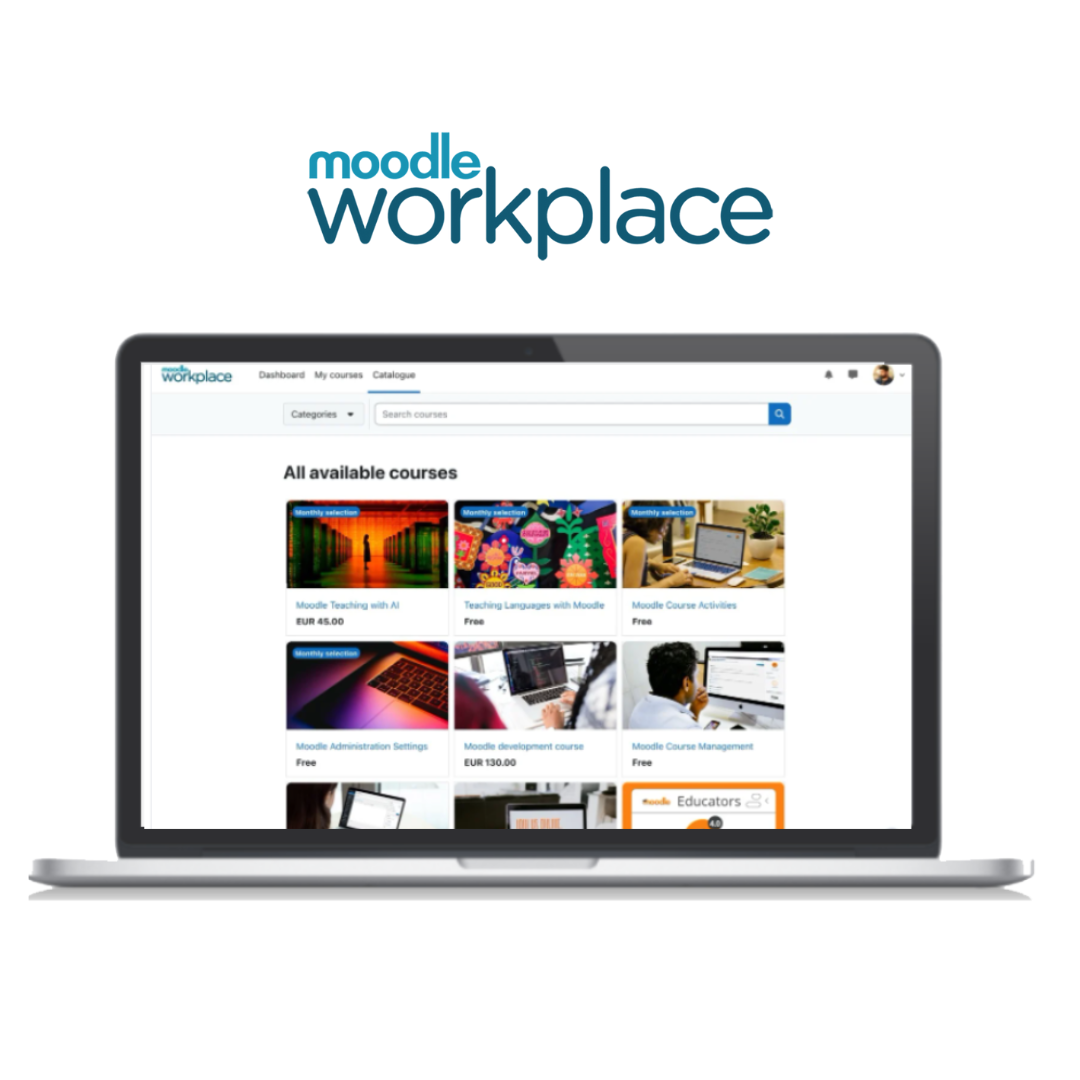Interview with:
Marcela Ruas
HR Development Director
Elis Group
Elis, leader in circular workplace services with 57,000 employees at 500 sites in 30 countries, has taken an ambitious gamble: to deploy an Open Source LMS, Moodle Workplace, in partnership with Enovation. For Marcela Ruas, HR Development Director at Elis Group, more than just a tool, this platform has become a real lever for transmitting the company’s values and enhancing team skills, by integrating Elis’ cultural and professional diversity.
What are the main challenges facing Elis in terms of skills development and business evolution?
Marcela Ruas: I joined Elis a year and a half ago with the task of setting up the HR Development department at organisational level. One of the key projects was the implementation of a Learning Management System (LMS), requiring the deployment of an online, asynchronous training system to meet the specific needs of each business line in the 30 countries where the Elis Group operates. Until then, we had been using collaborative platforms to deliver our training courses, but their effectiveness soon proved limited by the sheer size of the group. Our main challenge was twofold: to pass on the values of the group, which is headquartered in France, to all our subsidiaries, and to ensure that our employees continue to develop their skills. We needed a solution capable of adapting to the specificities of each profession and each country, while taking into account the cultural particularities of the learners. We therefore opted for a distance learning portal, accessible in asynchronous mode and integrated with our existing tools, to facilitate access to knowledge, anywhere and at any time. To achieve this, we chose the Moodle Workplace open-source LMS, and called on Enovation, a Premium Moodle Partner, for its deployment.
What process did you put in place to create valuable content that speaks to all cultures?
Marcela Ruas: To fully exploit the potential of Moodle Workplace and offer engaging, high value-added training courses, we first trained our training managers and business line managers. To date, more than 40 content creators have been trained in the design of learning paths, with another 100 planned before the end of the year. Each country has a Country Training Manager, responsible for local LMS administration, assisted by one or more Academic Advisors. Their role is to adapt each training course to the local language, culture and regulations.
What types of training courses have you set up to encourage upskilling?
Marcela Ruas: Our training offer covers all our business lines, but to simplify matters: onboarding training to speed up the integration of new recruits; mandatory RGPD compliance and security training; customised training, recommended according to the position held, with the possibility of exploring other skills (e.g. a logistics employee wishing to train in sales); business training on sales, compliance, marketing, and maintenance; finally, courses dedicated to the deployment of IT projects to speed up their implementation and guarantee their success. At Elis, we value continuous learning and exemplary management: our managers follow the training courses they recommend to their teams. We also take care to adapt each course to local conditions, while transmitting the company’s values.

What positive effects has this initiative had on Elis?
Marcela Ruas: Moodle Workplace is much more than an LMS. It has become a real knowledge network and a pillar of our growth strategy. It supports our commitment to quality for our customers and well-being at work for our employees. Thanks to Enovation’s expertise, we were able to deploy an LMS solution perfectly suited to the Group’s international presence, with subsidiaries on several continents. What’s more, simplified access to content creation tools (H5P, SCORM, quizzes, feedback, etc.) has made it possible to democratise the design of interactive and engaging training courses, and, ultimately, to inject a real impetus for pedagogical innovation into our organisation.
How have you encouraged the adoption of Moodle Workplace and the involvement of employees in these training courses?
Marcela Ruas: We relied on internal promotion to encourage the use of the LMS and reduce the disincentives to e-learning by adopting various strategies. Firstly, we ensured that training was aligned with employees’ missions and performance, to maximise their commitment and skills development. The aim was to demonstrate that there is a direct link between our training investment and sales performance, by highlighting how the acquisition of new skills could improve employees’ results and maximise their success in internal sales competitions. In general, training is not compulsory, but “desirable”. The idea is not to impose, but to suggest, by highlighting its concrete benefits: developing new skills, improving efficiency, speeding up the integration of new recruits and reducing the stress of the first few weeks on the job.
Have you also focused on internal communication?
Marcela Ruas: In particular, we have organised road shows in various countries to build up the LMS as a genuine knowledge and skills network. In addition, we have increased the number of presentations of the platform, via webinars or face-to-face sessions, and we have increased the number of training slots available. To stimulate engagement, we have introduced competitions and incentive systems that encourage competition while offering strategic learning opportunities. Finally, we have provided dedicated learning spaces, guaranteeing everyone an environment conducive to training and professional advancement. Thanks to this strategy, Moodle Workplace is perceived as a tool for progression, not as a constraint.
What are your next challenges?
Marcela Ruas: Our training courses are available in 11 out of 30 countries. We want to extend them to the whole group. We are also going to enrich our catalogue with 1,000 accessible training courses, and integrate artificial intelligence into our customised content creation process. We are also continuing to invest in support for our employees, particularly in the development of emerging skills. As Elis continues to expand internationally, we need to be able to train even more employees to create content in as many countries and languages as necessary, as well as be supported in managing different organisations/catalogues in parallel. Thanks to our partnership with Enovation, we are confident in our ability to meet these challenges and make the LMS a driver of growth and innovation for Elis.
To find out more about Moodle Workplace, watch our video, Moodle Workplace at a glance, presented by Benoit Marchais, Functional Manager at Enovation. Find out more about the Elis Group at http://www.fr.elis.com/fr
Note: This article was also published on e-learning letter if you would like to check it out there.





.png)




